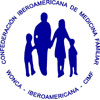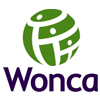Program of community interaction reinforce the development of medical students
Resumo
Introdução: The Program of Community Interaction (PCI) benefit undergraduate medical student from University Center of Várzea Grande (UNIVAG), Mato Grosso State as an important instrument in the teaching-learning that introduces students from the first semester to the public health system, most of all, to the Primary Health Care unit, mainly front door to communication to health care networks.
Objetivos: The aim of this study is describe the activities developed in the Program of Community Interaction (PCI) during first semester of medical course, as well attest the relevance of this program to a generalist and humanist medical formation according MEC and system of the Unified Health System (UHS).
Metodologia ou descrição da experiência: The PCI comprehend lessons that alternating with weekly visits by academics at Basic Health System (BHS) and local community to conduct issue addressed during classroom. The students are divided in group at six, which have a preceptor and a mutual support from a Primary Care Team (PCT). The students drawing maps of attributed territories by BHS, through Google Earth as well as Google Maps Engine. During community visitation “File A” (instrument for registration of family) are filled. The daily experience of PCI is described in to report organized as a portfolio.
Resultados: From “File A” it was possible to collect data as pathology of each member of family, occupation, education, residence, sanitation, media and main used transport, as well activity of community group. Therefore, the epidemiologic profiles of residents are characterized. Moreover, the premature intersection of academic to health care networks allow then to know in loco the UHS and BHS operation; development of spatial abilities, communication and team work; identify the main health problems from community and thus take action to promote prevention and rehabilitation of health care.
Conclusões ou hipóteses: The community interaction offers significant aids to generalist and humanist medical formation at the promote a premature contact from students and Primary Health Care unit. This experience develops in the students the abilities to incorporate the dimensions biopsychosocial and economic-cultural in the process health and illness, factors that strongly influence the individual's quality of life.
Palavras-chave
Texto completo:
PDF (English)Apontamentos
- Não há apontamentos.
Este periódico é de responsabilidade das associações:
Apoio institucional:







